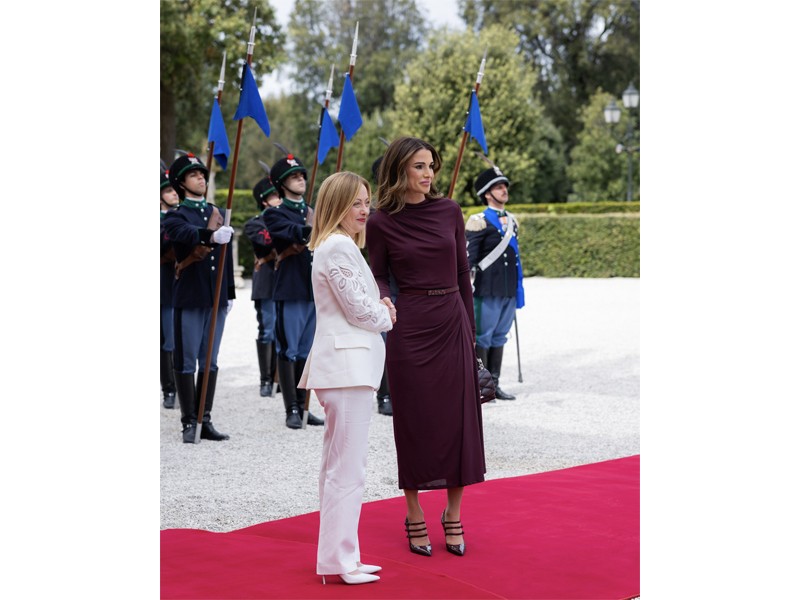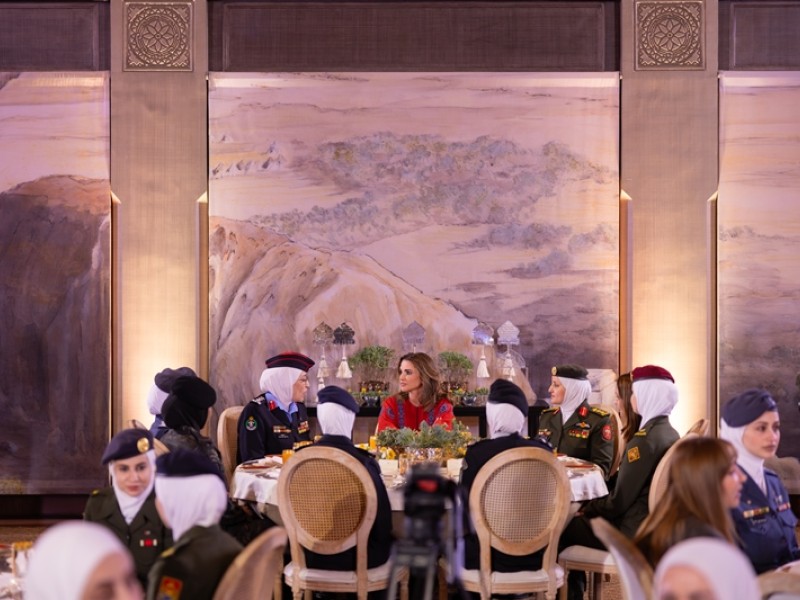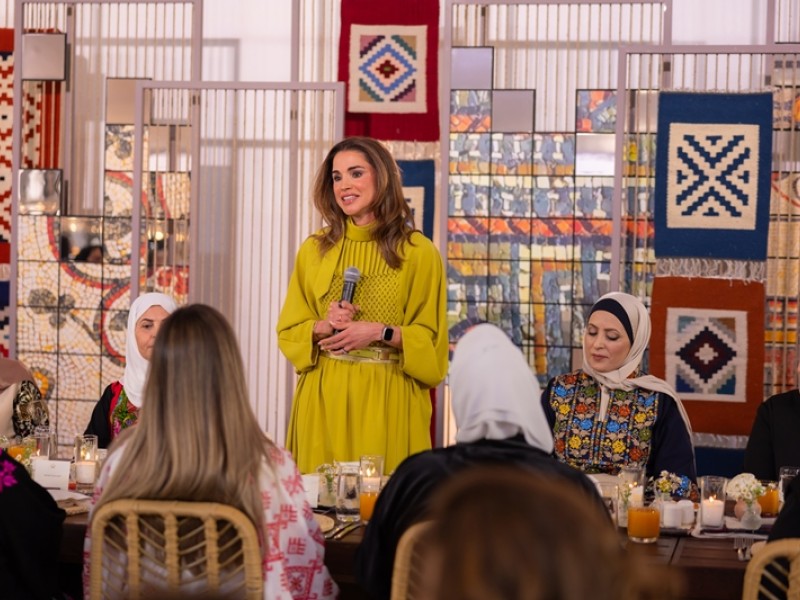Arab Expatriate Women Discuss Challenges of life abroad
(The Jordan Times, By Dalya Dajani - AMMAN) Reactions by Western communities against Arab women and families living among them after the Sept. 11 terrorist attacks on Washington and New York ranked high on the delegates’ agenda at the opening session of the Arab Expatriate Women’s Forum.
The multinational group of leading feminists and gender-equality campaigners from 19 member countries of the Arab League expressed particular concern for Arab and Muslim expatriate communities subjected to harassment.
“Arabs have always been... messengers of knowledge and information to the whole world. But they have also been known to have suffered bitter struggles against aggression,” said Bahia Hariri, Lebanese delegate.
“We believe in the right of people to live in freedom and peace, but today we also ask people around the world to be rational in their judgment, especially with [Arabs] living in [Western] communities,” said Hariri, who is the sister of Prime Minister Rafiq Hariri.
The high-level gathering, patronised by Her Majesty Queen Rania and devoted exclusively to Arab women, is the third of a series of five regional events being held this year to promote Arab women’s solidarity.
Doris Franjieh, from the Palestinian delegation, later told The Jordan Times that the recent racist attacks on Arab communities in the US is a “random campaign aimed at portraying Arabs as terrorists.”
“We must work to create an Arab media satellite station which would broadcast in foreign languages to eliminate the distorted images and misconceptions the West has of Arabs,” she said.
The audience of over 200, including a small male presence, is here for three days to discuss the factors behind Arab women’s emigration and the challenges facing them in their new environments.
Last year, spouses of Arab heads of state and members of the first Arab Women’s Summit in Cairo declared the year 2001 as the “Year of the Arab Woman,” calling upon feminist movements across the Arab world to promote the socio-economic and political role of women in their respective countries.
Standing before an audience of more than 200 participants, Queen Rania described Arab women expatriates as “ambassadors of civilization who, by reflecting their country’s cultural heritage abroad... will one day leave behind their imprints on Arab society.”
Similar fora tackling different aspects of Arab women and their role in society were hosted by Bahrain, Iraq and Tunisia earlier this year, and were also organised by the Arab League’s general secretariat, Lebanon’s Al Hariri Foundation and Egypt’s National Council for Women.
In her opening address, head of the forum’s Higher Committee and Minister of Social Development Tamam Ghul spoke about the sense of isolation experienced by the majority of Arab women who live away from their homeland.
Ghul pointed out that expatriate women who do not learn to speak the language of their host country usually end up feeling alienated and dissatisfied with their lives. Somali chief delegate Amina Warsme expressed similar sentiments regarding the plight of women living abroad.
Drawing upon her own experience as an expatriate who once lived in London for three years, Warsme told The Jordan Times that educated Arab women have a better chance of blending into foreign communities.
A few steps away, Rabab Khamis of the Iraqi delegation described how the US-imposed economic sanctions have led many families to emigrate in search of better lives.
“Wherever they are, Iraqi women still stand determined to overcome the difficulties facing them, but poor telecommunication lines make it difficult for us to maintain relations with [women outside],” Khamis told The Jordan Times.
Economic, social and political strife were cited among participants as factors behind the forced emigration of many Arab women and their families to the West.
Apart from social burdens, according to Egyptian diplomat May Abul Dahab, Arab women expatriates are also faced with the difficulties of conforming to a new environment while maintaining the values and traditions to protect their own identity and that of their children.
مواضيع مختارة
موقع جلالة الملكة رانيا العبدالله الرسمي
هذا الموقع الإلكتروني لا يدعم متصفحات الإنترنت القديمة. الرجاء تحديث متصفح الإنترنت إلى نسخة أحدث من إنترنت إكسبلورر 9
متصفح الإنترنت الذي تستخدمه قديم. لتحسين مستوى الأمان عند تصفح مواقع الإنترنت و مشاهدتها بالشكل الصحيح و بفعالية افضل قم بتحديث متصفح الإنترنت الخاص بك



